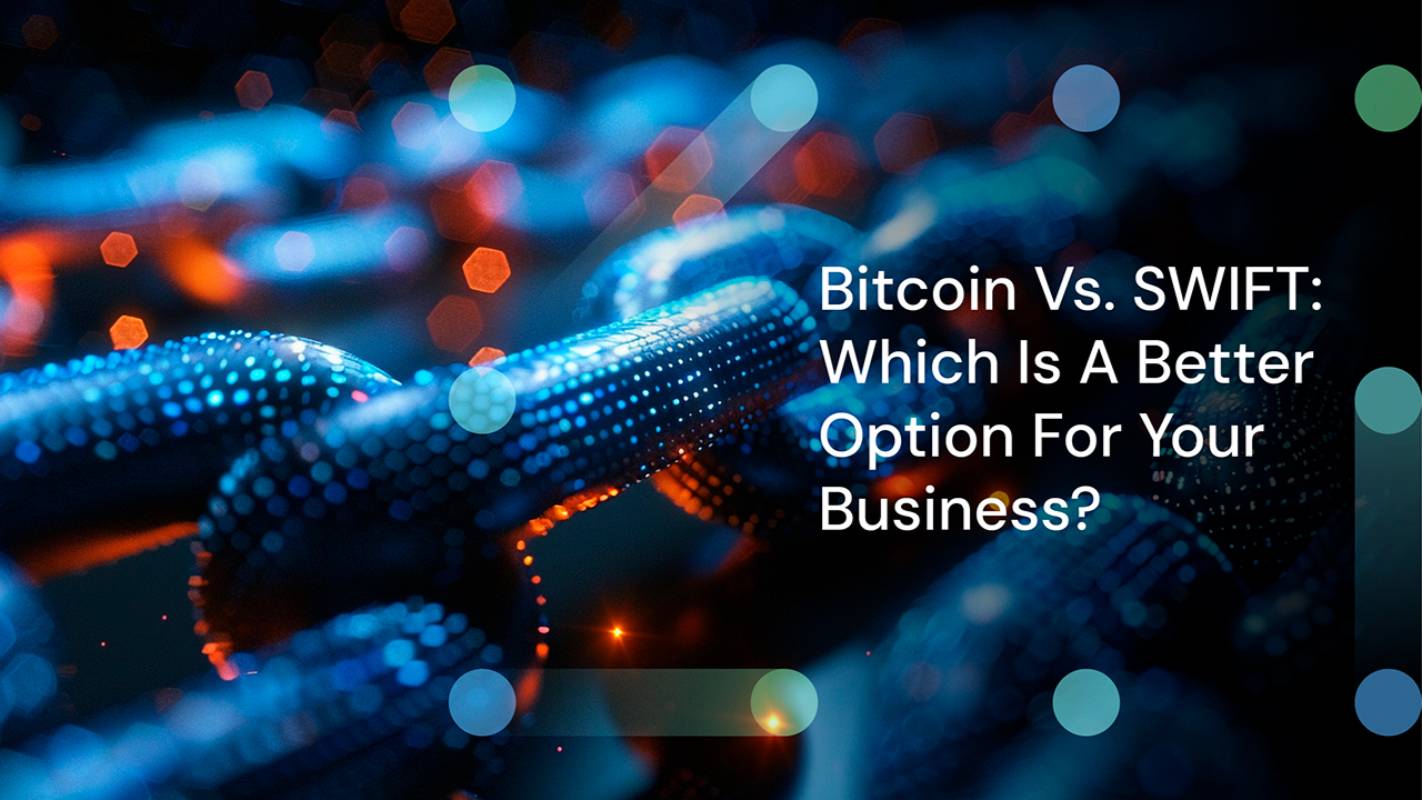In 2025, businesses have numerous payment methods at their disposal for conducting transactions, including making payments, receiving funds, and facilitating transfers. Traditionally, companies relied on methods mediated by third-party financial institutions such as banks and established payment processors. However, the landscape has evolved significantly with the rise of digital currencies. Bitcoin, which maintains its position as the leading crypto by market capitalisation, has emerged as a compelling alternative for business transactions. Bitcoin offers distinct advantages, including enhanced transaction speed, improved cost-effectiveness, robust security features, greater transparency, and unprecedented global accessibility. As a decentralised digital payment system, Bitcoin enables businesses to streamline their operations and reduce dependency on traditional banking infrastructure, making it an increasingly attractive option for forward-thinking companies in 2025.
Transaction speed & efficiency
When comparing transaction speed and efficiency in 2025, the landscape has evolved considerably from earlier years. Bitcoin transactions now typically confirm within 10-60 minutes, depending on network congestion and fee priority, with the Lightning Network enabling near-instantaneous payments for smaller amounts. SWIFT, while still processing traditional international transfers that can take 1-5 business days, has implemented improvements through SWIFT gpi (global payments innovation), reducing many cross-border transfers to same-day or next-day settlement.
However, Bitcoin’s 24/7 operational capability provides a significant advantage over SWIFT’s business-hours limitations. The Bitcoin network never closes, allowing businesses to send and receive payments at any time, including weekends and holidays. Additionally, Bitcoin eliminates the need for correspondent banking relationships and reduces the number of intermediaries involved in cross-border transactions, potentially reducing both costs and settlement times.
For businesses prioritising speed and operating across time zones, Bitcoin’s always-on network and growing Lightning Network infrastructure offer compelling advantages over traditional SWIFT transfers, particularly for smaller to medium-sized transactions where speed is critical.
Fees & costs
Cost considerations remain crucial when choosing between Bitcoin and SWIFT for business transactions in 2025. Bitcoin transaction fees have become more predictable and manageable, typically ranging from $1-15 per transaction depending on network congestion and priority level. The Lightning Network offers an additional layer for micro-transactions with fees often under $0.01, making Bitcoin viable for smaller payments.
SWIFT transactions involve multiple fee layers: correspondent bank fees, intermediary bank charges, foreign exchange spreads, and receiving bank fees. International SWIFT transfers typically cost businesses $15-50 per transaction, with additional hidden costs in currency conversion rates that can add 2-4% to the total transaction value.
For businesses processing high volumes of international payments, Bitcoin’s flat fee structure can provide significant cost savings compared to SWIFT’s percentage-based and multi-layered fee system. However, businesses must also consider Bitcoin’s price volatility and potential conversion costs when calculating total transaction expenses.
The integration of crypto payment gateways and automated treasury management systems in 2025 has made Bitcoin adoption more cost-effective for businesses, particularly those dealing with cross-border transactions or operating in regions with expensive traditional banking infrastructure.
Security & transparency
Security and transparency represent critical differentiators between Bitcoin and SWIFT in 2025. Bitcoin transactions are secured by the world’s most robust cryptographic network, utilising SHA-256 encryption and a decentralised blockchain that has maintained 99.98% uptime since its inception. Every Bitcoin transaction is permanently recorded on an immutable public ledger, providing complete transparency and auditability that businesses can verify independently.
The Bitcoin network’s security is further enhanced by its massive hash rate and global distribution of miners, making it virtually impossible to manipulate or reverse transactions once confirmed. In contrast, SWIFT operates on a centralised messaging system that, while secure, has experienced notable security breaches in recent years, including the $81 million Bangladesh Bank heist and various cyber attacks targeting member institutions.
For businesses prioritising transparency, Bitcoin offers real-time transaction tracking and verification without relying on intermediary confirmations. SWIFT transactions, while secure within the banking network, lack the same level of transparency and often require businesses to trust multiple intermediary institutions without direct visibility into the transfer process.
However, businesses must also consider regulatory compliance requirements in 2025, as Bitcoin transactions may require additional KYC/AML procedures depending on jurisdiction, while SWIFT benefits from established regulatory frameworks and compliance infrastructure.
Global reach & accessibility
Global accessibility represents one of Bitcoin’s most significant advantages over SWIFT in 2025. While SWIFT operates through a network of over 11,000 financial institutions across 200+ countries, its accessibility is limited by banking relationships, regulatory restrictions, and local infrastructure. Many regions still lack adequate SWIFT connectivity, and businesses in emerging markets often face higher costs and longer processing times.
Bitcoin, conversely, operates as a truly borderless payment system requiring only internet connectivity. As of 2025, Bitcoin’s global accessibility has been further enhanced by improved infrastructure, including widespread adoption of mobile wallets, point-of-sale systems, and integration with traditional payment processors. Businesses can now accept and send Bitcoin payments to any location worldwide without requiring correspondent banking relationships or navigating complex international banking regulations.
This accessibility advantage is particularly pronounced for businesses operating in regions with limited banking infrastructure, countries with currency restrictions, or markets where traditional cross-border payments are expensive or unreliable. Bitcoin enables these businesses to participate in the global economy more effectively, accessing international markets and customers that might otherwise be difficult or costly to reach through traditional SWIFT channels.
However, businesses must consider that Bitcoin adoption varies significantly by region, and some jurisdictions have implemented restrictions or outright bans on crypto transactions, which could limit its practical accessibility in certain markets.
Explore Bitpace crypto payment gateway solutions
Modern crypto payment gateway solutions have evolved significantly in 2025, offering businesses sophisticated tools to integrate Bitcoin payments seamlessly into their operations. These platforms now provide comprehensive solutions that address the traditional challenges of crypto adoption, including volatility management, regulatory compliance, and user experience optimisation.
Leading payment gateway providers offer features such as instant fiat conversion, multi-currency support, automated tax reporting, and integration with existing accounting systems. These solutions enable businesses to accept Bitcoin payments while minimising exposure to price volatility and simplifying operational complexity.
For businesses considering Bitcoin adoption in 2025, partnering with established payment gateway providers offers the benefits of crypto payments while maintaining the operational simplicity and regulatory compliance frameworks they require.
Conclusion: Making the right choice for your business in 2025
The decision between Bitcoin and SWIFT for business payments in 2025 depends on several key factors specific to your organisation’s needs, geographic focus, and risk tolerance.
Choose Bitcoin when:
- Your business operates globally and needs 24/7 payment capabilities
- You frequently make cross-border transactions and want to reduce intermediary fees
- Speed and transparency are critical to your operations
- You’re comfortable with crypto volatility and regulatory considerations
- Your customers and partners are increasingly crypto-savvy
Choose SWIFT when:
You require established regulatory frameworks and compliance infrastructure
- Your business operates primarily within traditional banking relationships
- You need the stability and predictability of fiat currency transactions
- Your partners and customers prefer conventional payment methods
- Regulatory restrictions in your jurisdiction limit crypto adoption
The hybrid approach:
- Many forward-thinking businesses in 2025 are adopting a hybrid strategy, using Bitcoin for specific use cases (such as international payments or tech-savvy customer segments) while maintaining SWIFT for traditional banking relationships and regulatory compliance requirements.
- As the financial landscape continues to evolve, businesses that understand both systems and can leverage their respective strengths will be best positioned for success in the global marketplace.
Start accepting crypto payments with Bitpace’s crypto payment gateway
Get paid in Bitcoin, Ethereum, Litecoin, and many more established cryptocurrencies with Bitpace crypto payment gateway. Reach out now to start accepting crypto payments.





